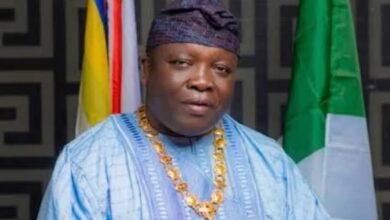A Reduction in the Expected Fiscal Deficit in 2024

Last Thursday, President Bola Tinubu presented the 2024 budget proposal to the National Assembly. According to the constitution, the executive sends the budget proposal to the legislative branch of the government. The national assembly then debates and makes amendments to the projected revenues and expenditures before sending them to the President for approval. The 2024 budget proposal, which is themed the Budget of Renewed Hope, marks the first budget of the new administration. The budget projects an aggregate expenditure of NGN27.5trn. This represents an increase of NGN2.7trn compared to the 2023 budget (including the supplementary).
The budget also projects an aggregate revenue of NGN18.7trn, compared with the NGN11.0trn forecast in the 2022 budget.
The expenditure and revenue forecasts imply a fiscal deficit of NGN9.2trn, which is lower than the NGN13.8trn in the revised 2022 budget.
The fiscal deficit is expected to be financed by new borrowings of NGN7.8trn, of which NGN6.1trn will be sourced from the domestic market, while NGN1.8trn will be drawn from foreign loans.
The Federal Government (FG) also plans to secure funding from other sources, including NGN1.1trn in bilateral/multilateral loans for specific development projects and NGN298.5bn from proceeds of asset privatisation.
The FG’s bullish revenue projection stems from the expected gains from the devaluation of the Naira and higher crude oil production projections.
Going into the specifics, the FGN forecasts an average exchange rate of NGN750/USD.
The projected exchange rate appears aggressive, given the lingering fx challenges, which have resulted in the continued depreciation of the Naira, with the NAFEM (Nigerian Autonomous Foreign Exchange Market) exchange rate moving to NGN927.2/USD from NGN769.3 in Jun ‘23.
That said, the FG’s optimistic exchange rate assumption may be hinged on anticipated fx inflows from bilateral engagements with several countries, such as Saudi Arabia and UAE, and discussions with foreign investors.
The projected oil price benchmark of USD77.96 per barrel seems to be in line with the current outlook of the oil market. However, we believe that the crude oil production target of 1.78 million barrels per day (mbpd) may be overly ambitious, given the security issues that have been impeding the sector’s productivity.
According to the most recent data from the Nigerian Upstream Petroleum Regulatory Commission (NUPRC), Nigeria achieved a daily crude oil production of 1.4mbpd as at end-Oct’23.
However, improved security in the Niger-Delta could lead to higher oil production and increased government revenue.
Moving to expenditure, the planned expenditure of NGN27.5trn comprised of NGN10.3trn in non-debt recurrent costs, capital expenditure of NGN8.7trn, and debt service cost of NGN8.3trn (including sinking fund). Other expenditures item includes NGN6.5trn for personnel and pension costs (including GOEs) and statutory transfers of NGN1.3trn




